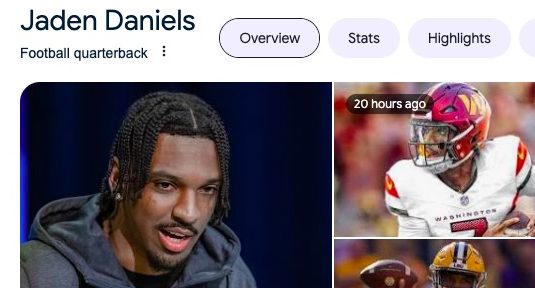The Super Bowl’s “Opening Night” of media availabilities Monday included plenty of questions about both President Donald Trump and NFL commissioner Roger Goodell, but the NFL’s official transcripts of those availabilities did not. That fits in with other previous controversial questions and answers left off of these transcripts. In a statement to Benjamin Hoffman and Ken Belson of The New York Times, though, the league said these transcripts aren’t designed to be complete:
A spokesman for the N.F.L., Brian McCarthy, said the transcripts of the one-hour media sessions, which are typically compiled by public-relations staff from the teams involved, were not intended to be a complete account of the interviews.
Rather, the league tries to provide the highlights as quickly as possible to the 2,000 or so members of the media credentialed for the Super Bowl.“There’s no editing of these quotes by the person who is transcribing nor by the league office,” McCarthy said.
The league has sanitized its Super Bowl transcripts in past years, too. Two years ago, for instance, the league’s transcript of interviews with the Seattle Seahawks’ outspoken cornerback, Richard Sherman, did not include his answers to questions about Kraft or about Goodell and his handling of the domestic violence case involving the Baltimore Ravens running back Ray Rice.
There may be no outright “editing,” but it’s certainly interesting what the staffers who compose these do and do not include. The questions about Trump and Goodell are certainly newsworthy, perhaps even more so for a wide audience than specific football questions, and some of them got notable responses. Many of the responses to Trump questions are listed in this article by Dave Birkett of The Detroit Free Press (which polled 10 players about if they’d visit the White House if they won, with only two saying they’d definitely go).
The latest
- Could NFL see next Saudi sportswashing controversy?
- ESPN and NBA have reportedly ‘essentially come to terms’ on deal that would keep Finals on ABC
- G/O Media sells The Onion to ‘Global Tetrahedron,’ ex-NBC reporter Ben Collins to serve as CEO
- Eli Gold on Alabama exit: ‘You can’t argue with city hall.’
As for New England quarterback Tom Brady and head coach Bill Belichick, who have both been closely linked to Trump from phone calls to letters, both largely declined to answer questions about him. Hoffman and Belson write that Brady said “I’m not talking politics at all,” and Belichick said “I’m focused on our team and for getting ready for Sunday.” Brady also wouldn’t really comment on what it would be like to receive the Lombardi Trophy from Goodell in the wake of Goodell suspending him for four games over the “Deflategate” scandal, saying “I’m not worried about the postgame or anything like that, I just want to go out there and do great during the game.”
The NFL is under no obligation to provide full and complete transcripts of any interview, of course. The reporters doing the interviewing presumably are recording these and/or taking notes, and they’ll use these responses if they deem them newsworthy (as Birkett, Hoffman and Belson did), regardless of if the league includes that in a transcript. However, the NFL’s choices of what to include or not include in a transcript, whether that’s made by on-the-ground PR staffers or as part of a wider league policy, does indicate how deeply the league wants to stay away from potentially-controversial political ground, and how they’re not looking for people to cover how their players and coaches feel politically. That’s a far cry from other leagues like the NBA; consider how many NBA players and coaches are currently weighing in on Trump’s travel ban in strong terms, and how even NBA.com ran a story about their coaches and players voicing their political views after Trump’s election.
In the end, leaving these questions and answers out of the transcripts is probably not the smartest move from the NFL. Those who were going to write about Trump and Goodell questions and answers are going to do so regardless of if the league provides transcripts or not, and omitting those questions may actually draw more attention to this (the famed Streisand effect). It certainly leads to headlines like the NYT’s “N.F.L. Transcripts Leave Out a Couple of Things: Trump and Goodell,” and those probably bring more negative attention to the league than if reporters were just writing about the substance (or lack thereof) of the comments on Trump and Goodell.








Comments are closed.